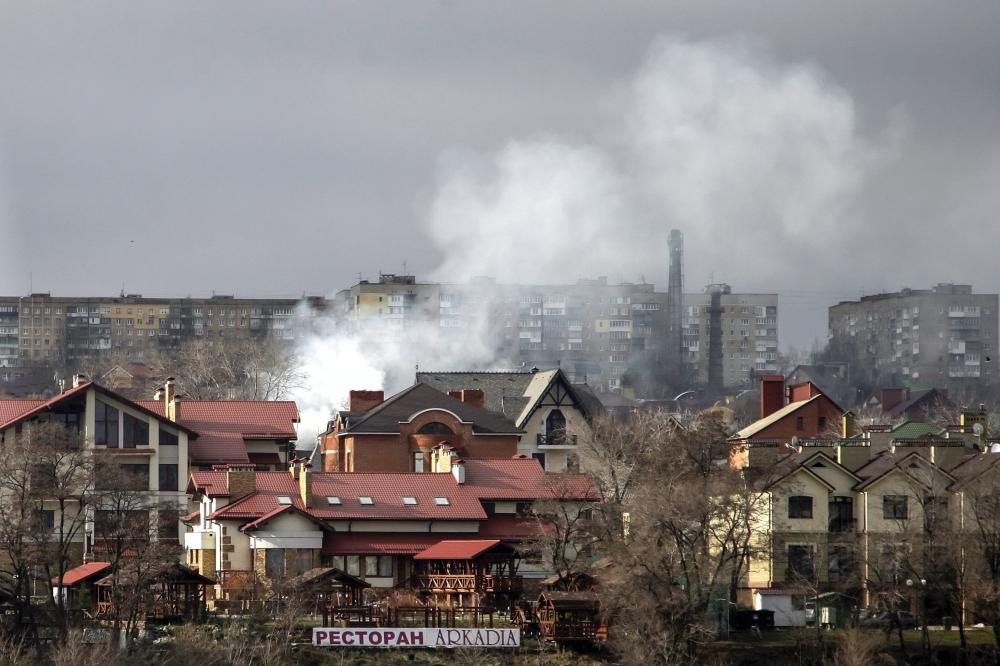At least eight civilians have been killed in the past 24 hours and 22 wounded in fighting between pro-Russian rebels and Ukrainian troops in the separatist stronghold of Donetsk.
The civilian toll has risen during the past three weeks as the fighting between the two sides escalates. The U.N. says at least 224 civilians have been killed and 545 wounded in that period.
“Bus stops and public transport, marketplaces, schools and kindergartens, hospitals and residential areas have become battlegrounds … in clear breach of international humanitarian law,” U.N. High Commissioner for Human Rights Zeid Ra’ad Al Hussein said.
The U.N. said the overall death toll in the fighting that began in April 2014 stands at 5,358. The violence has increased since early this year after a period of relative calm.
The past day’s toll in Donetsk came from rebels; a Ukrainian military spokesman said five servicemen were killed and 27 wounded in the same period, The Associated Press reports.
The AP has more on the latest fighting:
“The rebels’ main offensive is now directed at Debaltseve, a railway junction once populated by 25,000 people that lies between the rebel-held cities of Luhansk and Donetsk in eastern Ukraine. Almost 2,000 residents have fled in the past few days alone.
“Separatists last week captured the town of Vuhlehirsk, crucial for the advance on Debaltseve. Rebel leaders insist, however, they are not planning to storm Debaltseve itself because of potential for civilian casualties.”
Russia denies claims by Ukraine and its Western allies that Moscow is backing the rebels. Russia is under U.S. and EU sanctions for its role in the crisis, but that has not resulted in a let up in the fighting.
A senior official in the Obama administration told the AP the increase in fighting is pushing the White House to review its policy of not sending weaponry to Ukraine’s government to fight the rebels. A report released Monday by the Atlantic Council, the Brookings Institution and the Chicago Council on Global Affairs urged the U.S. to authorize $1 billion in military aid to Kiev.
“We don’t think that we could provide the kinds of weaponry or training in time for Ukraine to defend against an all-out assault by the Russians,” Ivo Daalder, head of the Chicago Council on Global Affairs and one of the authors of the report told NPR’s Robert Siegel. “But what we’d like to do is to have Ukraine’s capacity be sufficiently strong that Russia is confronted with the choice to so escalate and, therefore, so raise the cost on itself to achieve its military objectives or, alternatively and preferably, to negotiate a political solution that is real and lasting.
9(MDA3MTA1NDEyMDEyOTkyNTU3NzQ2ZGYwZg004))
